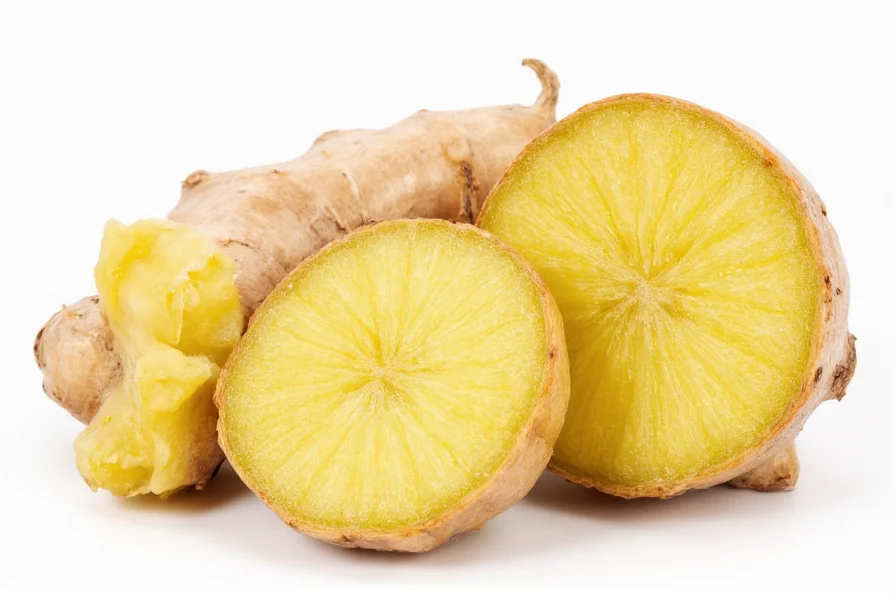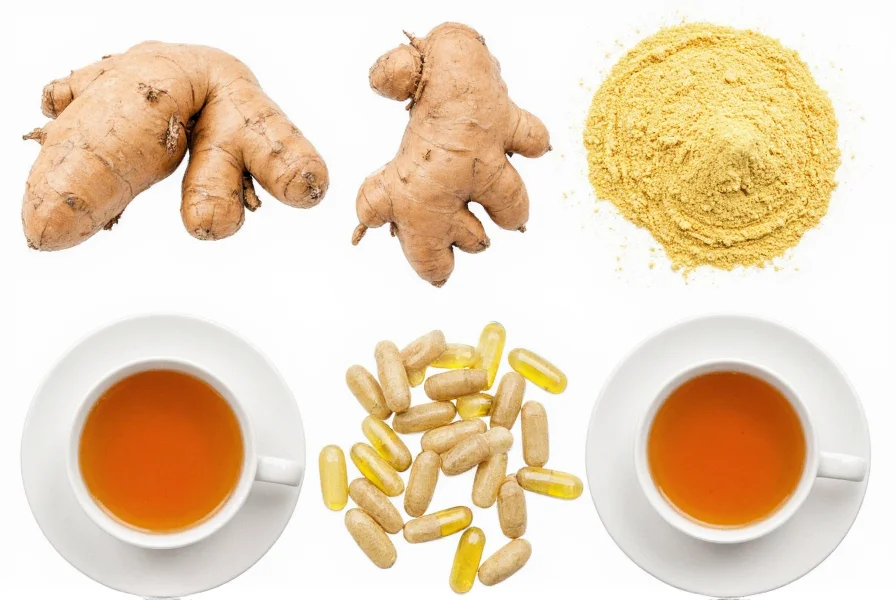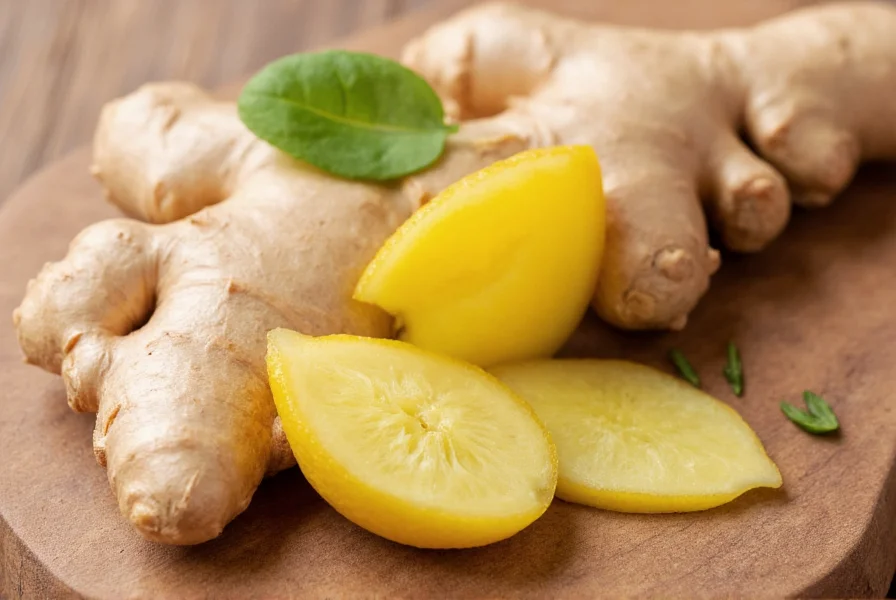For centuries, ginger has been a cornerstone of traditional medicine across Asian and Middle Eastern cultures. Modern research now validates many of these traditional uses, revealing ginger's potent bioactive compounds and their impact on human health. This comprehensive guide examines the scientifically proven benefits of ginger, appropriate usage methods, and important safety considerations based on current medical research.
The Science Behind Ginger's Health Properties
Ginger's therapeutic effects primarily come from gingerols, shogaols, and other bioactive compounds that demonstrate powerful anti-inflammatory and antioxidant properties. A 2022 meta-analysis published in the Journal of Nutrition and Metabolism confirmed ginger's effectiveness in reducing markers of inflammation, particularly in individuals with osteoarthritis and rheumatoid arthritis.
Research shows ginger works through multiple biological pathways:
- Inhibits pro-inflammatory cytokines and enzymes like COX-2
- Modulates immune cell activity
- Enhances antioxidant defense systems
- Stimulates gastric motility and digestive enzyme production
| Health Benefit | Recommended Dosage | Time to Effect | Scientific Support Level |
|---|---|---|---|
| Nausea relief | 1-1.5g fresh ginger or 250-500mg extract | 30-60 minutes | High (multiple RCTs) |
| Inflammation reduction | 500mg-2g daily for 4+ weeks | 2-4 weeks | Moderate-High |
| Digestive support | 2g before meals | During digestion | Moderate |
Ginger for Nausea and Digestive Health
Ginger's most well-documented benefit is its effectiveness against various forms of nausea. Multiple randomized controlled trials demonstrate ginger's superiority over placebos for:
- Morning sickness during pregnancy (studies show 70% reduction in symptoms with 1g daily)
- Post-operative nausea (comparable to conventional antiemetics)
- Chemotherapy-induced nausea
- Travel sickness
Unlike pharmaceutical anti-nausea medications, ginger typically causes fewer side effects while providing comparable relief. The American College of Gastroenterology recognizes ginger as an effective natural remedy for functional dyspepsia, noting its ability to accelerate gastric emptying by up to 25%.

Anti-Inflammatory and Pain Relief Applications
Ginger's anti-inflammatory properties make it valuable for managing chronic pain conditions. A landmark study in Arthritis and Rheumatism found that participants with knee osteoarthritis who took 500mg of ginger extract twice daily experienced significantly greater pain reduction than the placebo group after six weeks.
Additional research suggests ginger may help with:
- Muscle pain after exercise (reducing soreness by 25% in clinical trials)
- Menstrual pain (comparable to ibuprofen in effectiveness)
- Headache relief through vasodilation effects
The anti-inflammatory effects build over time, with most studies showing optimal results after consistent use for 4-8 weeks. For acute pain relief, higher doses (1-2g) may provide faster results.
Cardiovascular and Metabolic Benefits
Emerging research indicates ginger may support cardiovascular health through several mechanisms. Studies show ginger supplementation can:
- Lower fasting blood sugar by 10-12% in people with type 2 diabetes
- Reduce LDL cholesterol levels by approximately 15 mg/dL
- Decrease markers of oxidative stress in cardiovascular tissue
- Improve blood circulation through mild anticoagulant properties
A 2023 review in the Journal of Cardiovascular Pharmacology concluded that ginger shows promise as a complementary approach for metabolic syndrome management, though more long-term human studies are needed.
Safe Usage Guidelines and Potential Side Effects
While ginger is generally safe when consumed in food amounts, medicinal use requires attention to dosage and potential interactions. The World Health Organization recommends not exceeding 4 grams of ginger daily for adults.
Potential side effects at higher doses include:
- Heartburn or gastric irritation
- Mild blood thinning effects (caution with anticoagulants)
- Lowered blood pressure (monitor if taking hypertension medication)
- Increased bile production (avoid with gallstone conditions)
Pregnant women should consult their healthcare provider before using ginger medicinally, though doses under 1g daily are generally considered safe for morning sickness. Individuals scheduled for surgery should discontinue ginger use at least one week beforehand due to potential bleeding risks.

Practical Ways to Incorporate Ginger Into Your Routine
Maximizing ginger's health benefits requires proper preparation and consumption methods. Here's how to get the most from this powerful root:
- Fresh ginger: Peel and slice or grate into hot water for tea (steep 10 minutes). Use 1-2 inches daily for health benefits.
- Ginger shots: Blend 2 inches ginger with lemon and a small amount of honey. Consume 1-2 ounces daily on an empty stomach.
- Cooking: Add to stir-fries, soups, or smoothies. Cooking preserves most active compounds.
- Supplements: Choose standardized extracts containing 5% gingerols for consistent dosing.
For digestive benefits, consume ginger 20-30 minutes before meals. For inflammation management, spread doses throughout the day. Fresh ginger generally provides more potent effects than dried forms due to higher gingerol content.
Conclusion: Evidence-Based Ginger Recommendations
Ginger represents one of the most scientifically validated natural remedies available. Its effectiveness for nausea relief, particularly during pregnancy and chemotherapy, stands as its most robustly supported benefit. The anti-inflammatory properties show significant promise for managing chronic pain conditions, though effects build over weeks of consistent use.
When incorporating ginger for health purposes, prioritize fresh forms when possible and maintain consistent daily intake for chronic conditions. Always consult with your healthcare provider before using ginger medicinally if you have underlying health conditions or take prescription medications. As research continues to evolve, ginger's role in evidence-based complementary medicine appears increasingly significant.
Frequently Asked Questions
What's the most effective way to consume ginger for nausea relief?
For immediate nausea relief, chew a small piece of fresh ginger root (about 1/4 inch) or sip ginger tea made from freshly grated ginger steeped for 10 minutes. Clinical studies show that 1-1.5 grams of fresh ginger or 250-500mg of standardized extract provides significant relief within 30-60 minutes. Ginger candies containing real ginger (not just flavoring) can also be effective when nausea strikes unexpectedly.
How much ginger should I take daily for inflammation reduction?
Research indicates that 500mg to 2 grams of ginger extract daily, divided into 2-3 doses, effectively reduces inflammation markers. For fresh ginger, 1-2 inches (approximately 20-40 grams) grated or sliced into tea or food provides similar benefits. Consistent daily use for at least 4 weeks is necessary to see significant anti-inflammatory effects, as the compounds build up in your system over time. Always start with lower doses to assess tolerance.
Can ginger interact with blood pressure medications?
Yes, ginger may enhance the effects of blood pressure medications due to its mild vasodilatory properties. While moderate dietary consumption (up to 1g daily) is generally safe, higher medicinal doses could potentially cause blood pressure to drop too low when combined with antihypertensive drugs. If you take blood pressure medication, monitor your readings closely when starting ginger supplementation and consult your physician about appropriate dosing. Discontinue use at least one week before any surgical procedures due to potential bleeding risks.
Is fresh ginger more effective than powdered or supplemental forms?
Fresh ginger generally contains higher levels of gingerols, the primary active compounds, compared to dried or powdered forms which convert some gingerols to shogaols during processing. However, standardized supplements provide consistent dosing of specific compounds. For digestive benefits, fresh ginger appears most effective. For inflammation management, both fresh ginger and standardized extracts (containing 5% gingerols) show comparable results in clinical studies. Powdered ginger retains significant benefits but requires slightly higher doses (about 25% more) to achieve similar effects as fresh.
How long does it take to feel ginger's health benefits?
The timeline varies by benefit: nausea relief typically occurs within 30-60 minutes of consumption; digestive improvements may be noticed during or shortly after meals; anti-inflammatory effects require consistent daily use for 2-4 weeks to become noticeable; and metabolic benefits like blood sugar regulation may take 4-8 weeks of regular use. For acute issues like motion sickness, ginger works quickly, while chronic conditions require sustained use. Most clinical trials showing significant results used ginger consistently for at least 4 weeks at appropriate therapeutic doses.











 浙公网安备
33010002000092号
浙公网安备
33010002000092号 浙B2-20120091-4
浙B2-20120091-4